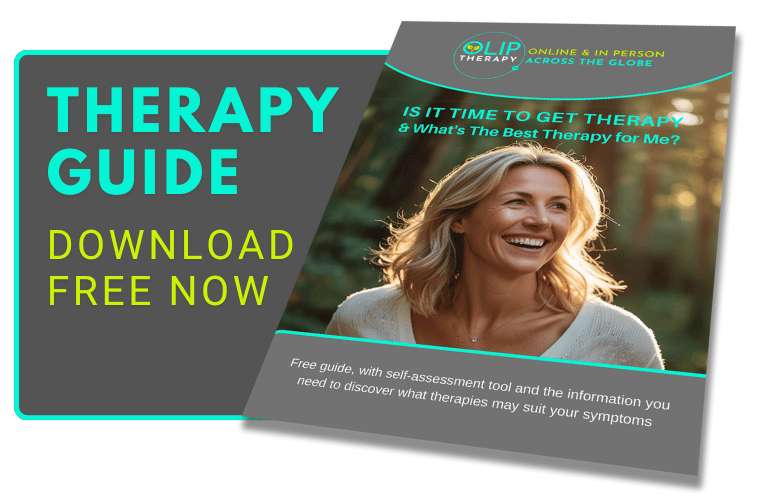
Help for Aggression using Counselling, Hypnotherapy, EMDR & CBT Online or In-Person in Hampshire
Hypnotherapy & Counselling for Aggression & Anger
Feeling overwhelmed? Let us guide you towards healing and recovery
Why is it that some people seem to be able to remain calm in most situations while others seem to blow up at the smallest thing? Do you feel out of control when you get angry?
Understanding Anger and Aggression: How to Regain Control
Anger is a natural, core emotion that we all experience from a young age. However, aggression occurs when feelings of anger escalate into hostility and violent urges, often resulting in a desire to lash out, attack, or confront. The key issue with aggression is that it can lead to a sense of losing control, leaving those around the aggressor feeling frightened or anxious.
If you struggle with aggression, your loved ones may feel as though they have to walk on eggshells, or avoid you altogether, to prevent triggering an unpredictable or aggressive response. This can severely damage relationships and create a stressful environment for everyone involved.
Effective Therapy for Aggression Online or In-Person in Fareham Hampshire
What plays a factor in aggressive behaviour?
Aggressive behaviour often stems from feelings of anger, frustration or a sense of being wronged. When these emotions build up, some individuals may reach a point where they feel unable to control their anger, resulting in aggressive outbursts. This aggression can manifest verbally or, in more severe cases, escalate to physical violence.
Those who frequently display aggressive behaviour are often described as having a "short fuse," prone to "boiling over" or "exploding" into violent episodes. It’s important to recognise that anger itself is a normal and instinctive response to situations where we feel insulted, deceived, frustrated or under attack. Anger is a natural defence mechanism that has been essential for survival.
However, there is a crucial boundary that must not be crossed. While anger is a normal part of life, aggression - especially when it turns violent - is not acceptable. It can harm relationships, lead to social isolation and cause significant distress for both the individual and those around them.
If you find yourself struggling to manage your anger or displaying aggressive behaviour that feels out of control, help is available. Seeking support can make all the difference in learning to handle these emotions in a healthy and constructive way.
How Therapy Can Help Different Types of Anger
Chronic Anger: Chronic anger arises when someone becomes upset and angry over minor or trivial circumstances. This type of anger often builds up over time, leading to feelings of rage. Individuals prone to chronic anger have a low threshold for triggers, causing frequent outbursts. This can make those around them feel cautious or uncomfortable, as the potential for an angry reaction is always present.
Passive Aggression: Passive aggression involves indirect resistance to the demands or expectations of others. It often manifests through behaviours such as stubbornness, sulking, or procrastination. People who display passive aggression may not openly express the cause of their anger, which can strain relationships, as those around them may struggle to understand their behaviour.
While everyone experiences anger from time to time, it can be difficult to recognise when it becomes a problem. If you find yourself being violent towards others, deliberately breaking or damaging things, engaging in aggressive arguments with loved ones, or feeling out of control when angry, it may be time to seek help to manage this emotion more effectively.
Managing Your Anger With Hypnosis & Hypnotherapy
Managing Anger for Better Health and Relationships
Holding onto anger can negatively impact your health, strain your relationships and damage your mental well-being. Hypnotherapy offers an effective way to address the root causes of your emotions, helping you deal with anger in a healthier, more constructive manner.
Your aggression may stem from past experiences or encounters, or it could be a learned behaviour from your upbringing, where a parent or primary caregiver displayed signs of aggression that you’ve internalised. This is a pattern you don't want to pass on to your own children, so now is the time to break the cycle and seek help.
At OLIP Therapy, we work with both the conscious and unconscious mind to help you create lasting change. Our fully trained therapists use tailored techniques to suit your individual needs, ensuring that your emotional responses become more appropriate and manageable over time.
Understanding Your Triggers
Recognising what specifically triggers your aggression is key to managing it. At OLIP Therapy, we work with you to identify these triggers and develop more rational, controlled responses. By diffusing aggressive behaviour safely, we help you regain control over your emotions.
Managing emotions can be challenging, but with the right support, you can ensure your anger doesn't take over. Taking steps towards change will not only benefit your relationships but also protect your overall health.
At OLIP Therapy, we truly understand the complexities of anger, and we are here to help. The first step is acknowledging that your anger is causing problems in your life. From there, all you need to do is pick up the phone and call us on 0800 970 4776 for a quick chat with one of our friendly professional therapists. You can then book a free initial consultation where we’ll explain the therapy process and answer any questions you may have.
COUNSELLING & CBT FOR ANGER AND AGGRESSION ISSUES
Counselling can be very effective in addressing aggression and anger issues. Here are some ways it helps:
Understanding Triggers: Counselling can help individuals identify what triggers their anger, whether it's specific situations, feelings, or past experiences.
Emotional Regulation: Therapists can teach strategies for managing emotions, helping clients recognise when they're becoming angry and how to calm down before reacting.
Communication Skills: Counselling often focuses on improving communication skills, enabling individuals to express their feelings and frustrations without resorting to aggression.
Cognitive Behavioural Techniques: Therapists may use cognitive-behavioural therapy (CBT) to help clients reframe negative thought patterns that contribute to anger.
Conflict Resolution: Counselling can provide tools for resolving conflicts peacefully, reducing the likelihood of aggressive outbursts.
Stress Management: Learning stress reduction techniques, such as mindfulness or relaxation exercises, can help individuals manage the underlying stress that fuels anger.
Building Empathy: Counselling can foster greater empathy, helping individuals understand the perspectives of others, which can reduce aggressive tendencies.
Accountability: Having a therapist can provide a safe space for individuals to reflect on their behaviour and take responsibility for their actions.
By working through these areas in a supportive environment, individuals can learn to handle their anger more constructively and improve their overall emotional well-being.






